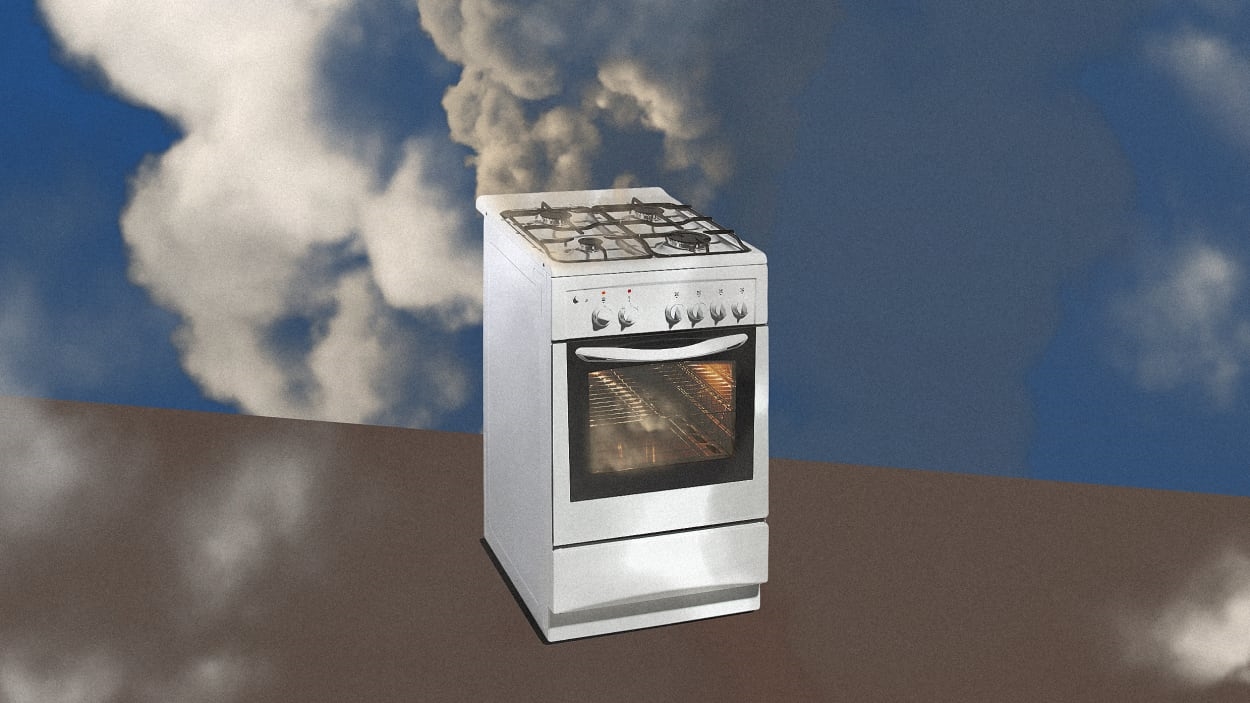The government isn’t banning gas stoves. But should it?
No, the federal government is not coming for your gas stove. At least not yet.
After Richard Trumka Jr., a commissioner with the U.S. Consumer Product Safety Commission, hinted at a possible gas stove ban in an interview with Bloomberg published Monday, the agency has clarified it has no plans to ban gas stoves.
“Research indicates that emissions from gas stoves can be hazardous, and the CPSC is looking for ways to reduce related indoor air quality hazards,” Alexander Hoehn-Saric, chair of the commission, said in a statement on Wednesday. “But to be clear, I am not looking to ban gas stoves and the CPSC has no proceeding to do so.”
In the interview with Bloomberg, Trumka Jr. had said that gas stoves are “a hidden hazard.” “Any option is on the table,” he continued, adding “Products that can’t be made safe can be banned.”
Those comments set off a wave of backlash and outrage. “This is a recipe for disaster,” Senator Joe Manchin tweeted, linking to the Bloomberg interview. “The federal government has no business telling American families how to cook their dinner. I can tell you the last thing that would ever leave my house is the gas stove that we cook on.” Other politicians voiced their opposition as well; one Texas congressman tweeted that he would “NEVER give up my gas stove.”
But should you give up your gas stove? It may seem harmless—just a tool you use daily to help feed yourself and your family—but it’s really a source of pollution. Gas stoves emit pollutants including carbon dioxide, carbon monoxide, and nitrogen oxides when in use. Even when off, they leak methane, a potent greenhouse gas with up to 80 times the global warming power of CO2.
Even though the CPSC doesn’t plan to ban gas stoves, it is researching the health hazards that they present and looking for solutions, according to Hoehn-Saric, like strengthening safety standards on the appliances. This spring, he added, the commission will ask the public to provide it with information about gas stove emissions and “potential solutions for reducing any associated risk.”
For years, scientists have been highlighting the dangers of gas stoves, not only to the planet’s health, but to our own. The emissions from gas stoves have been associated with more severe asthma and increased use of inhalers in children. An estimated 12.7% of childhood asthma cases in the U.S. are caused by gas stoves, according to a recent study. Using gas stoves can expose people to pollutant levels, like nitrogen dioxide exposure, higher than the EPA’s guidelines for one-hour outdoor exposure. Gas stoves also produce PM2.5 (particulate matter smaller than 2.5 micrometers), which can penetrate people’s lungs and even enter the bloodstream, and have been known to worsen chronic lung conditions such as COPD and emphysema; there’s also evidence these particles can increase heart attacks, strokes, and lead to premature deaths.
Some lawmakers sent a letter to the commission in December, asking the CPSC to “protect Americans from the hazards of gas stove emissions” by requiring gas stoves to be sold with range hoods that meet mandatory performance standards, requiring labels on gas stoves that educate consumers about their exposure risks, and launching a public education campaign on the health risks of cooking with a gas stove, among other suggestions.
Across the country, cities have taken steps to reduce the prominence of gas stoves. In 2019, Berkeley, California, became the first city in the U.S. to ban gas in newly constructed buildings, and around 30 other cities in California alone have since followed suit. In 2021, New York City banned gas connections for new buildings, becoming the largest in the country to do so. New York state is now proposing the same move. (Along with the climate and indoor health risks, there’s also the deadlier risk of gas mains breaking and causing explosions, which has happened numerous times across the country.)
As Representative Alexandra Ocasio-Cortez noted online, municipalities that have taken such steps don’t force everyone to switch to electric or induction stoves. (The Inflation Reduction Act, however, does have rebates for switching to electric appliances, including stoves and ovens.) “The way we are handling it in NYC isn’t to force people to switch what they already have. Folks can keep their appliances, and new buildings in NYC will have gas-free stoves,” she said on Twitter. “As for federally, any proposal from the CPSC would go through a quite lengthy review and input process.”
In the meantime, climate and health experts continue to sound the alarm on gas stoves, and other agencies are taking steps to highlight the impact of gas appliances in general: Energy Star, for example, stopped recommending any gas appliances like boilers or dryers on its “most efficient” list. Denise Grab, manager of the Rocky Mountain Institute’s Carbon-Free Building team, previously told Fast Company that it was the first time a federal agency “has really recognized that there’s not a place for gas appliances in a clean-energy future.” And it may not be the last.
(21)



